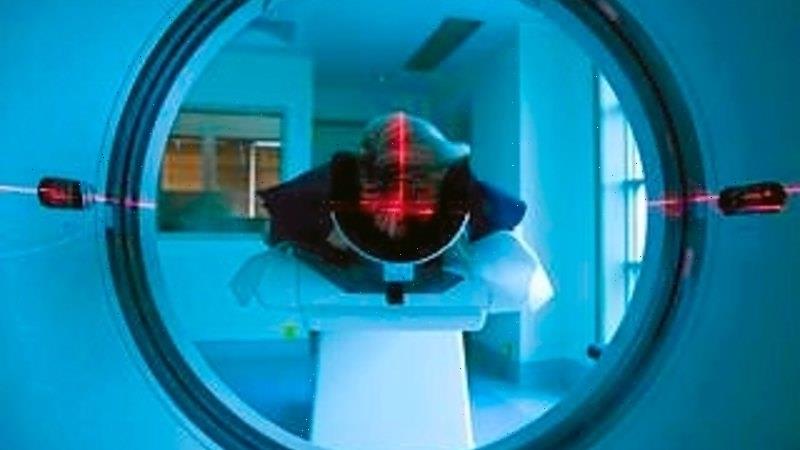London: Men are being asked if they are pregnant before undergoing scans at National Health Service facilities in England, it has emerged.
Male cancer patients and those having X-rays and MRI scans are being asked if they could be expecting after the British government removed the word “female” from the law governing the medical procedures and replaced it with “individuals”.
Pregnant? NHS services now ask all adult patients if they might be expecting a baby before scans.Credit:Nicolas Walker
The Walton Centre NHS Foundation Trust, in Liverpool, now asks “all patients under the age of 60, regardless of how you may identify your gender”.
The London Telegraph understands that the facility is among a handful of trusts to have implemented the policy for men and women undergoing procedures which involve radiotherapy and could harm an unborn baby.
It comes amid anger at the NHS for prioritising gender over sex to be inclusive of trans people, including on single-sex wards.
One woman whose husband has cancer says the question before a scan had caused “unnecessary confusion and agitation” and was “unfair” as a combination of steroids and brain surgery had made him emotional. She added: “This was very confusing for him in his post-surgical daze, his vulnerability and needs [were] completely ignored.”
Medics are required to find out if a patient could be pregnant before carrying out procedures involving radiotherapy, diagnostic imaging and nuclear medicine because of the risk it poses to the unborn child.
The Department of Health updated the regulations regarding the procedures in 2017 and changed the wording about those who should be questioned from “females of childbearing age” to “individuals of childbearing potential”.
Campaigners on Monday warned that the policy was part of a “clinically dangerous” practice to record gender and not sex on medical records. They pointed out that those born male cannot get pregnant.
NHS guidance states that patients can change their name and the gender on their official documents without going through the legal process or any medical intervention.
Kat Barber, of campaign group Sex Not Gender Nurses and Midwives, said: “This is an example of why we need both sex and gender clearly recorded.
“We do not need to ask all patients if they are pregnant. We need to ask females, hence why it is important to know if the person we are providing care for is female whilst also respecting their gender identity.”
A spokesman for The Walton Centre NHS Foundation Trust said: “We believe asking all people who are having their abdomen imaged/scanned in this way, regardless of gender, is the least intrusive way of ensuring it is safe to proceed.”
The Telegraph, London
Most Viewed in World
From our partners
Source: Read Full Article

